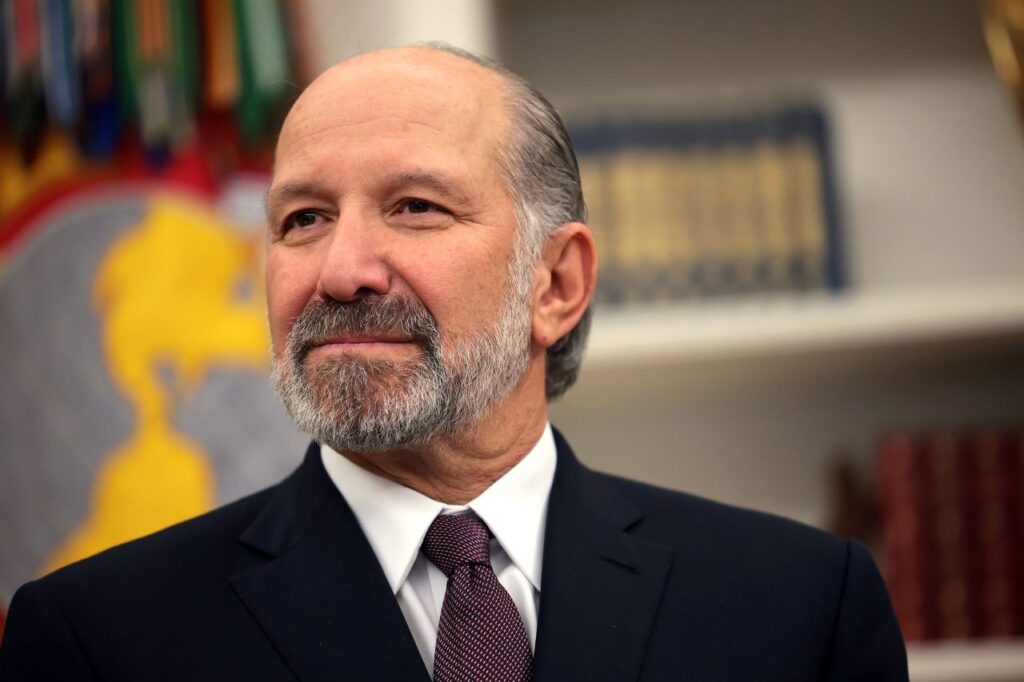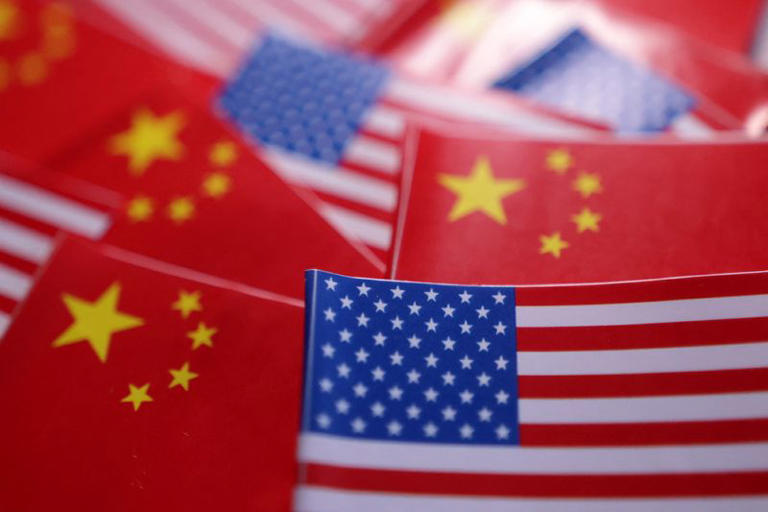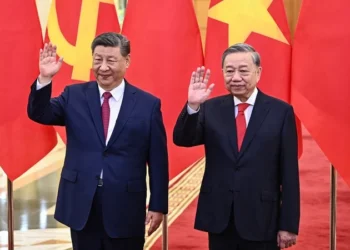China has said that the United States’ decision to exempt smartphones and other electronic goods from President Donald Trump’s sweeping tariffs is a “small step” in correcting a misguided policy.
A spokesperson for the Chinese Ministry of Commerce told reporters in Beijing that the exemption represents a “small step (by) the US to correct its unilateral ‘reciprocal tariff’ erroneous practice.”
The spokesperson asserted that Since Trump announced his round of reciprocal tariffs on the US’ trading partners on April 2, the policy “has not only failed to solve any problems of the US itself, but has seriously undermined the international economic and trade order.”
The Spokesperson went on to call for the US to “completely cancel” the tariffs.
On Wednesday, Trump announced he would pause the introduction of his reciprocal tariffs on all trading partners except China, which now has a 145% levy slapped on its goods.
Beijing has retaliated by putting a 125% tariff on American imports into its market.
However, the Trump administration announced late Friday that some electronic goods imported into the country will be exempt from reciprocal tariffs, including from China.
Smartphones, computer monitors and various electronic parts are among the exempted products.
According to the notice, the exemption applies to products entering the United States or removed from warehouses as early as April 5, 2025.
The exemption does not include the 20% tariff on Chinese goods for the country’s role in the fentanyl trade.
The tariff exemption would have a major impact on tech giants like Apple, which make iPhones and other products in China.
Roughly 90% of Apple’s iPhone production and assembly is based in China, according to Wedbush Securities’ estimates.
Trump had told reporters Friday on Air Force One that there could be possible exclusions to his sweeping tariffs. “There could be a couple of exceptions for obvious reasons, but I would say 10% is a floor,” Trump said.
Semiconductors and microchips are among the products heavily outsourced to factories in Asia due to lower costs. Those electronic parts are now exempt, according to the Friday notice. That could help Asian chipmakers, such as Taiwan Semiconductor Manufacturing Company (TSMC), South Korea’s Samsung and SK Hynix.
The White House said on Saturday that Trump will continue to urge tech companies to move production to the United States.
Commerce Secretary Says Tariff Exemption On Electronics Isn’t Permanent

Meanwhile, US Commerce Secretary, Howard Lutnick noted that the tariff exemption on a wide range of electronics, including semiconductors and smartphones, will be temporary.
Pressed why the administration made the move to exempt certain electronics from the reciprocal tariffs, Lutnick iterated that the exemption will be temporary.
“These are included in the semiconductor tariffs that are coming, and the pharmaceuticals are coming. Those two areas are coming in the next month or two. So, this is not like a permanent sort of exemption.”
Howard Lutnick
He asserted that tariffs targeting specific business sectors will be imposed in the next couple months on certain products key to national security, which will be “not available for negotiation.”
“Semiconductors and pharmaceuticals will have a tariff model in order to encourage them to reshore. We need our medicines, and we need semiconductors and our electronics to be built in America. We can’t be beholden and rely upon foreign countries for fundamental things that we need.”
Howard Lutnick
Lutnick, who earlier this week said he had not been engaging with Chinese officials directly, said he that believes Trump and Chinese leader Xi Jinping “will work this out” and Trump will secure a good result for the US.
READ ALSO: Wencai Zhang Calls on Finance Minister, Pledges Stronger World Bank-Ghana Partnership


















